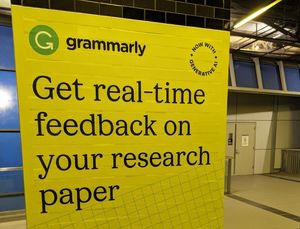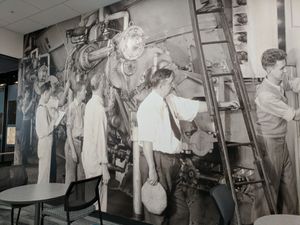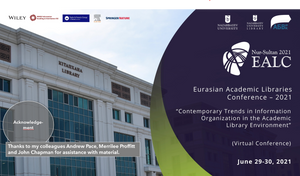A systemwide perspective
Think of the close collaboration within the Orbis Cascade Alliance for example, where academic libraries in Washington and Oregon are moving to a shared systems infrastructure. Or think of the various initiatives looking at managing down individual print collections within a coordinated collective framework, WEST, for example. Or think of collaboratively sourced initiatives to tackle new service areas, Hathi Trust for example.
Of course, in many countries there are publicly funded bodies who are charged with managing shared services, development work, or community R&D. Think of how union catalogs or license negotiations are provided in many countries, or the role in national provision of some national libraries, or the national work of educational organizations like JISC in the UK.
At the same time, libraries are looking to simplify their infrastructure requirements through cloud-based approaches. Think of the wide deployment of Libguides for example, or of the growing adoption of discovery layer products, or of the move to cloud based systems infrastructure (resolver, ILS).
In each of these cases, libraries are looking at different models of sourcing their needs – collaborative, public, and third party respectively. They are also looking at doing things at different scales – shared with a group (e.g. Orbis Cascade Alliance), at national or regional level (e.g. Libraries Australia), or working with a supplier at the institutional level (e.g. cloud-based discovery layers). Sourcing and scaling now pose interesting policy and service questions across library services.
Recognizing the importance of these questions, OCLC Research has organized some of our activity in a new program area to address them: system-wide organization. Our early work in this area has focused on the collective print collection, mining our data to provide community intelligence to support decisions about the future configuration of print collections. The influential “Cloud Library” report (Cloud-sourcing Research Collections) provided a framing context for this work, and was followed up more recently with Print Management at ‘Mega-scale’, which is the first study of its kind, showing the geographic concentrations of collections. This work has been very purposefully connected with policy and organizational issues and we work closely with most of the major initiatives tackling this question. We have also carried out the largest study of circulation data to date, the OhioLINK Collection and Circulation Analysis, and are preparing a synthesis of those findings.
Another strand of current activity is exploring through Worldcat how national literatures are represented in the global library resource, and a case study will be published soon. This focus continues our earlier work on mining Worldcat to reveal characteristics of the collective library collection (see for example our original analysis of the collections in libraries working with Google on digitization, or our analysis of the aggregate print book resource likely in copyright).
While early work has focused on applying data analysis to policy and service questions, we are now working with individual libraries to think about the wider context of sourcing and scaling across the breadth of their work. Here is how we describe it on the theme’s web pages:
System-wide organization explores the shift from local provisioning of library collections and services to increased reliance on cooperative infrastructure, collective collections, shared technology platforms, and “above-the-institution” management strategies. At the same time, we examine the array of collections and services that are best provided at the level of the local institution. Our research agenda in system-wide organization aims to improve our understanding of the factors that guide institutions in their sourcing and scaling choices as they seek maximum impact and efficient provision of library collections and services.
Libraries are embarked on a shift to greater engagement with the research, learning and development lives of their users, and reconfiguring space, services, expertise and infrastructure to facilitate this. Our agenda is being designed to provide examples and research findings which assist in this shift.
Further Information:
Reports and articles
- Constance Malpas. Cloud-sourcing Research Collections: Managing Print in the Mass-digitized Library Environment
- Constance Malpas, Brian Lavoie and JD Shipengrover. Print Management at ‘Mega-scale’: a Regional Perspective on Print Book Collections in North America
- Brian Lavoie and Lorcan Dempsey. Beyond 1923: Characteristics of Potentially In-copyright Print Books in Library Collections
- Brian Lavoie, Lynn Silipigni Connaway, and Lorcan Dempsey. Anatomy of Aggregate Collections: The Example of Google Print for Libraries
Blog entries
- Sourcing and scaling
- Untangling the library systems environment (see discussion of scalar emphasis)
- Sourcing and scaling: the University of California
OCLC Research Activity Pages
- System-wide Organization
- Managing the Collective Collection
- OhioLINK Collection and Circulation Analysis
Note: This entry adapts the introductory message in the OCLC Research Quarterly Highlights, Issue 7, October-December 2012.
Picture: I took the feature picture in Seattle, home to several Orbis Cascade Alliance members.
Note: Cosmetic updates on 29 April 2021 to add headings and feature picture.




